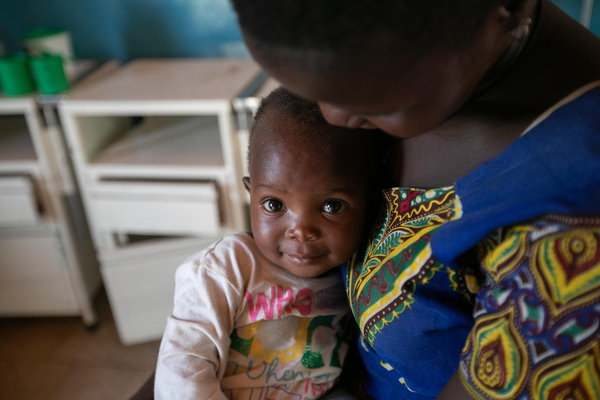In preparation for Universal Health Coverage Day, global and national leaders and experts launched on 11 December 2023 The BMJ Collection on Quality of Care. Developed in collaboration with the World Health Organization and The World Bank, the Collection shares critical thinking on both the emerging priorities and unfinished agenda for improving quality of care in low- and middle- income countries.
The webinar discussed and reflected on topics in the Collection related to :
- Creating an enabling and supportive environment for implementing quality of care
- Engaging communities and other stakeholders in quality of care initiatives
- Innovating to advance quality of care
All of the articles are available to read Open Access: www.bmj.com/qualityofcare
Programme:
Welcome and introduction: Kathleen Hill, Senior Principal Technical Advisor, MOMENTUM Country and Global Leadership/Jhpiego
Opening remarks:
• Bruce Aylward, Assistant Director-General UHC and Life Course, World Health Organization Geneva
• Monique Vledder, Head of the Global Health, Nutrition and Population Department, The World Bank
• Kamran Abbasi, Editor in Chief, The BMJ
Panel discussions:
Panel 1: Creating an enabling environment for Quality of Care
Facilitated by Anshu Banerjee, Director, Department for Maternal, Newborn, Child and Adolescent Health, and Ageing, WHO Geneva
•Matron Margaret Mannah, Program Manager, National Quality Management Programme, Ministry of Health and Sanitation, Sierra Leone
•Munir Kassa, Senior Technical Advisor, Ministry of Health, Ethiopia
•Selina Dussey, Acting Head, Quality Management Unit, Ministry of Health, Ghana
Panel 2: Engaging for Quality of Care
Facilitated by Blerta Maliqi, Unit Head, Quality of Care, Department for Integrated Health Services, WHO Geneva
•Bongani Chikwapulo, Head of Norms and Standards, Quality Management Directorate, Ministry of Health and Population, Malawi
•Rajat Chabba, Technical Director, Market Solutions, Jhpiego
•Minara Chowdhury, Senior Director, Institute for Healthcare Improvement
Panel 3: Innovating for Quality of Care
Facilitated by Sanam Roder-DeWan, Lead, Service Delivery Redesign, The World Bank & Associate Professor of Community and Family Medicine Dartmouth Medical School, Hanover, USA
•Andrews Ayim, Deputy Director Policy, Policy, Planning, Monitoring and Evaluation Division, Ghana Health Service
•Mickey Chopra, Global Solutions Lead for Service Delivery, Health Nutrition and Population global practice, The World Bank
•Hema Magge, Senior Program Officer, Newborn Health, Bill and Melinda Gates Foundation
Wrap-up: Kathleen Hill, Jhpiego
Closing remarks:
- Juan Pablo Uribe, Global Director, Health, Nutrition and Population, The World Bank and the Global Financing Facility
- Rudi Eggers, Director, Department for Integrated Health Services, WHO Geneva
This webinar was co-hosted by the World Health Organization, The World Bank and The BMJ.
Photo credits: © WHO / Fanjan Combrink

